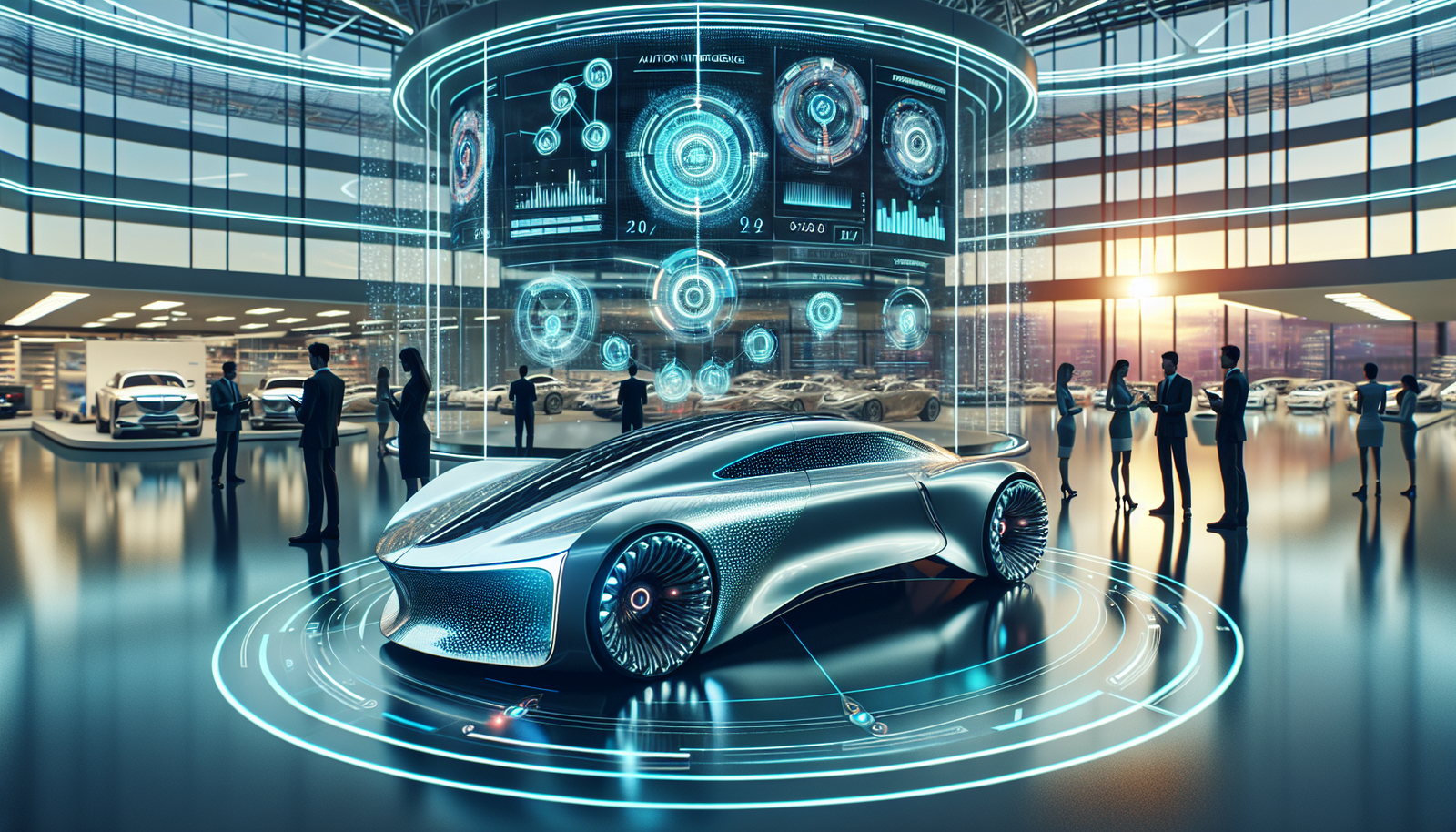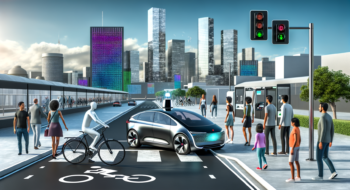The automotive industry is on the brink of a revolutionary transformation, driven by the integration of artificial intelligence (AI) into the buying, servicing, and dealership processes. As technology continues to evolve, AI offers unprecedented opportunities to enhance customer experiences and streamline operations. By leveraging AI-driven solutions, dealerships can not only improve efficiency but also foster deeper customer relationships. This article explores the future of AI in the automotive sector and its potential to reshape how consumers and dealerships interact. Discover how innovation is paving the way for a more connected and efficient automotive landscape.
The Rise of AI in Automotive Sales
The automotive landscape is rapidly changing as the marriage of AI and traditional sales processes promises to enhance efficiency and redefine customer service. With AI technologies such as machine learning and natural language processing, dealerships can anticipate customer needs more effectively. The days of the one-size-fits-all sales pitch are fading away, replaced by personalized experiences that resonate with today’s buyers.
Imagine walking into a dealership and having a sales associate instantly know your preferences and past interactions. AI-powered tools can analyze customer data from a broad range of sources, allowing for tailored recommendations that align with individual needs. For example, if a buyer has previously shown interest in eco-friendly vehicles, AI systems can provide relevant options that highlight fuel efficiency and sustainability, thereby improving the likelihood of a sale.
Enhanced Customer Engagement
Another promising application of AI in automotive sales is its ability to enhance customer engagement through chatbots and virtual assistants. These tools are not just for answering frequently asked questions; they can handle complex interactions and provide real-time support. According to a recent study, 80% of customers reported that they prefer chatting with a bot for routine inquiries, thus freeing human agents to engage in more complex customer relationships.
- Instant Responses: AI chatbots enable dealerships to respond to inquiries around the clock, providing immediate assistance regardless of the time of day.
- Data Collection: These intelligent systems continually gather customer data, providing insights that can help guide future marketing strategies.
- Seamless Integration: AI tools can integrate with Customer Relationship Management (CRM) systems, ensuring that every interaction is logged and easily accessible for human counterparts.
With AI technology, customers experience real-time communication and empowerment, providing them with the ability to make better-informed decisions, thus leading to improved satisfaction and loyalty.
Streamlined Dealership Operations
The benefits of AI extend beyond sales processes; they also play a vital role in improving dealership operations. For instance, AI can optimize inventory management by predicting demand and managing supply levels more efficiently. No longer will dealerships find themselves caught with surplus vehicles or facing shortages of popular models.
Furthermore, leveraging AI algorithms can also enhance financing processes. In an era where transparency is crucial, AI systems can quickly analyze a customer’s financial profile, providing tailored finance options in real-time while adhering to compliance regulations.
The Future of Automotive Service
AI’s transformative impact does not stop at sales and operations; it extends deeply into automotive service. With the integration of AI in maintenance scheduling and predictive diagnostics, dealerships can ensure that vehicles are serviced before potential issues escalate into costly repairs.
- Predictive Maintenance: AI systems analyze data from sensors installed in modern vehicles, predicting when maintenance will be required. For instance, understanding when a tire may need replacing based on driving habits and conditions can enhance safety and customer satisfaction.
- Efficiency in Service Scheduling: AI can optimize service scheduling by analyzing customer patterns and preferred time slots, thereby reducing wait times and boosting service throughput.
- Automated Diagnostics: AI can reduce the time technicians spend on diagnostics, ensuring that they focus on repair rather than guesswork. This leads to quicker turnaround times and happier customers.
Transforming the Customer Experience
At the intersection of AI and customer experience lies an opportunity to make servicing vehicles a more pleasant, less stressful endeavor. Many customers find visiting a dealership for service a hassle; however, with AI, that can change. From online booking to personalized reminders about upcoming services, businesses can provide a seamless experience.
Moreover, AI can create a virtual “service advisor” experience that keeps customers informed about the status of their vehicle at all times. Automated notifications about progress in servicing or potential delays can ensure that customers feel valued and included.
The Human Touch in an AI World
While AI technologies provide numerous advantages, it’s crucial to remember that the heart of the automotive industry lies in human interaction. Customer service excellence cannot be entirely replaced by AI; instead, it should be viewed as a tool that empowers human agents to provide a better experience. Well-trained staff augmented with AI capabilities can lead to unprecedented levels of customer satisfaction and loyalty.
AI in Dealership Marketing
AI also plays a pivotal role in marketing, allowing dealerships to reach target audiences more effectively. By understanding customer behavior, AI systems can assist in creating hyper-targeted advertising campaigns that resonate with the preferences and needs of potential customers.
- Performance Tracking: AI tools track the performance of marketing campaigns in real-time, enabling dealerships to adapt their strategies based on what works and what doesn’t.
- Customer Insights: Utilizing AI allows dealerships to gain a deeper understanding of customer journeys, ultimately aiding in improving engagement and retention strategies.
- Cost Efficiency: By automating various elements of marketing, dealerships can reduce costs while improving their overall return on investment.
According to industry analysts, dealerships that embrace AI-driven marketing strategies can see significant increases in sales, making them more competitive in the ever-evolving automotive landscape.
The Road Ahead
As we look ahead, it is evident that AI will play a crucial role in shaping the future of the automotive industry. A major challenge for dealerships will be balancing AI integration without losing the personal touch that customers truly value. The most successful managers will be those who can leverage AI to augment human interaction rather than replace it.
Investments in AI technology can lead to not just improved efficiency and profitability but also the development of a new kind of relationship between consumers and dealerships. The rise of AI speaks of a future where every customer feels uniquely catered to, ultimately elevating the automotive shopping and servicing experience.
For more insights on how AI is transforming the automotive landscape, check out Neyrotex.com.
Conclusion: A New Era for Automotive
The automotive industry stands on the verge of a profound renaissance, with AI technology being the linchpin of this change. As dealerships navigate this new paradigm, it’s essential to remember that customer experience remains paramount. The key to success will be to utilize AI intelligently, ensuring that it enhances, rather than replaces, human relationships. By embracing these advancements, the automotive sector can drive into an era marked not just by efficiency and productivity but by real, meaningful connections with consumers.
As we venture into this exciting future, one thing is clear: the integration of AI is not just a fleeting trend; it’s a revolutionary shift that will define the automotive landscape for years to come. To stay informed about these innovations and transformations in the automotive world, be sure to visit Neyrotex.com.







